DARK AGE ONLINE
kc harrison
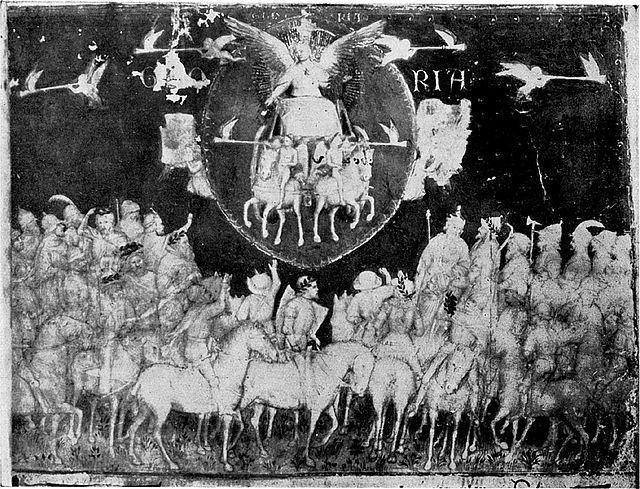
The Dark Ages, as is historically understood, refers to a period in European history spanning nearly five hundred years (500 AD-1000 AD). Also called the Early Middle Ages, it was an era that sat in between the fall of the Roman Empire and the beginning of the Enlightenment sometime between the 13th and 15th centuries. It is interesting to note that the notion of a "Dark Age" - as opposed to an "Enlighted Age" - was born within the very Medieval tradition of retrofitting names, and accompanying characteristics, to periods of history defined by the Biblical Creation and ending with the Final Judgement. The people living during the Dark Age would not have thought they were living in such an era; this idea only came about after the spread of humanist philosophy - which by definition places importance on human life and achievement rather than divine devotion.
With this in mind, I would like to explore some of the concepts Renaissance historians and philosophers were thinking about when they coined the term "Dark Age", ask you: Would you know if you were living in a Dark Age?
I. Characteristics of a Dark Age:
- Illiteracy

The commoner, or peasant, often had limited access to literature or lecture outside of their compulsory church attendance. The purpose of church sermons were often to ensure their conformity, to instill fear of transgression, and to create expectations for behavior. Reading and writing isn't a prerequisite for intelligence, however - many cultures have rich traditions of oral history - but the explicit purpose of attendance was to quell critical thinking, lest the peasant learn and speak on the indignities of the era. Skepticism of the grandiose claims of the Church were common - many were reluctant to believe the bread and wine of transubstantiation were the literal body and blood of Christ - but the elaborate performances of believing zealots among them pressured acceptance, and once something so immaterial could be taken as truth, it was not a stretch of the imagination to exploit this trust with more extreme ideas. - Lack of mobility
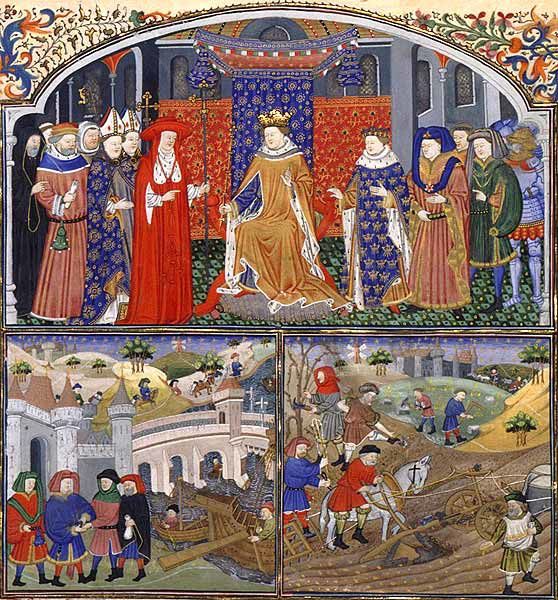
It is no secret that the feudal system of the area relied on the strict adherence to social hierarchies. A vast majority of the population lived as farming peasants, with their entire lives determined by the whims of their Lords. Farmers would owe a percentage of their harvests and livestock to the King in the form of taxes, they would often be married off by their Lords, and they would owe military service to their Vassals during defensive or offensive attack. They very rarely owned the land they worked or could marry into a higher class. Runaway serfs were subject to severe punishment. Their lives were wagered as soldiers for military conquest at the whim of their Lords, and if the military failed to protect them, they were collateral in conquest. - Social unrest
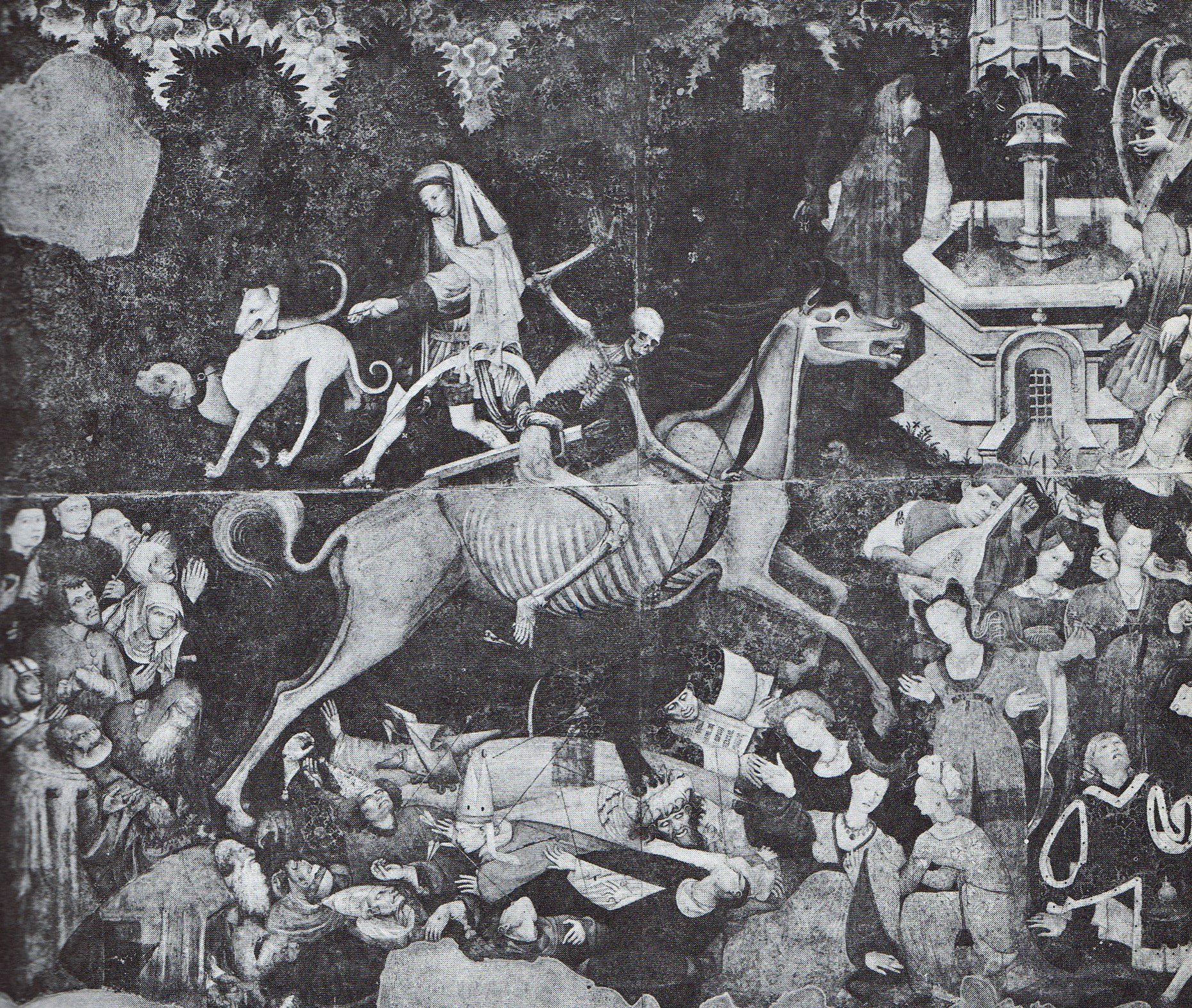
Closely related to a lack of mobility, i.e. self-determination, was the social unrest as a result of increasingly oppressive government, constant illness and short life expectancy, extreme poverty, poor education, and overall violent, superstitious life. Revolts, ambush, frivolous policing, mistrust, and isolation bred grounds for reactionary violence, which was a stated fact of Medieval life. Artwork of the period often depicted a characture of Death as a skeleton dancing carelessly amongst the living. - Superstition
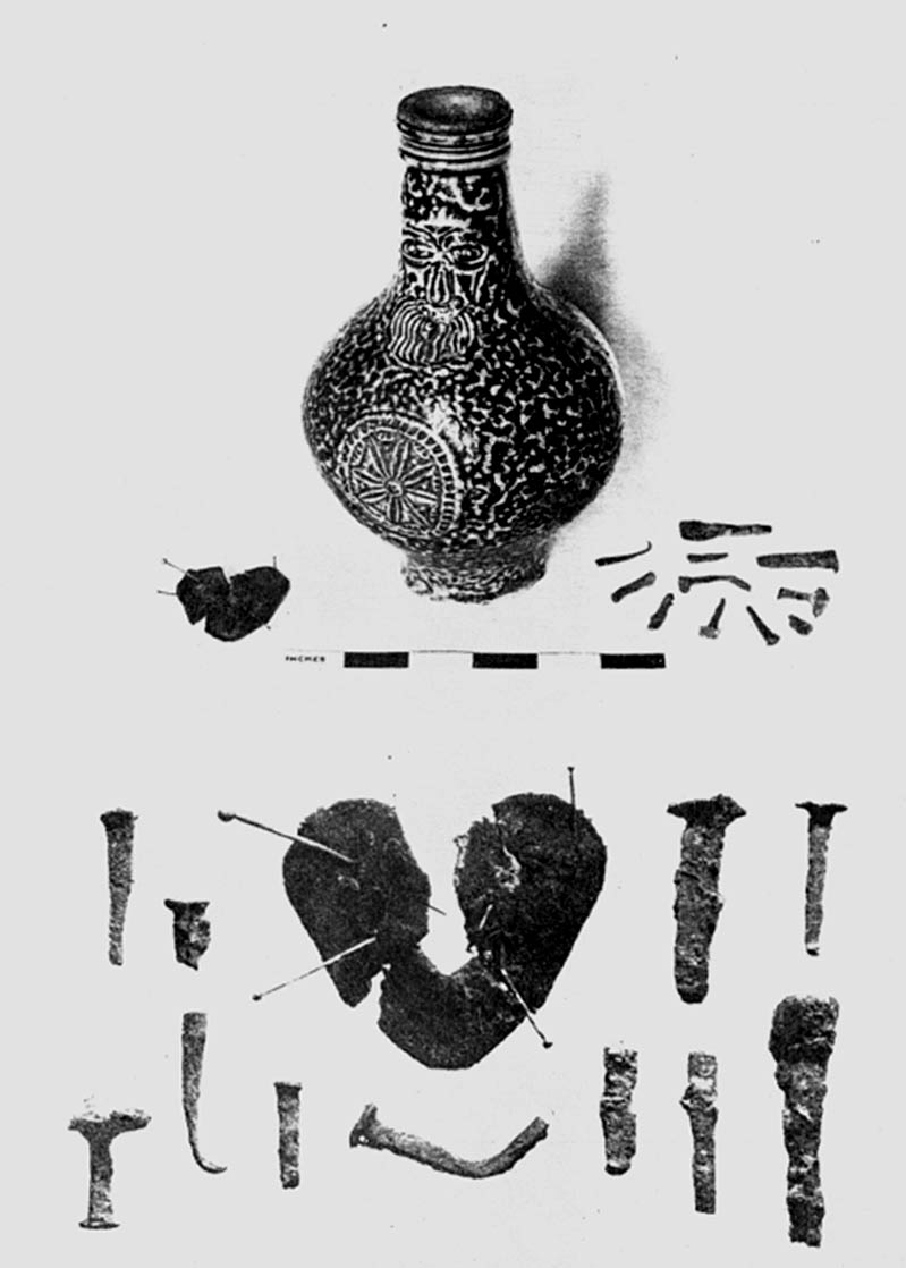
Religious fervor mixed with the remnants of folk magic created a volatile mixture of superstition that always teetered on the edge of damnable witchcraft. The belief in the abilities of certain magical items or rituals to bless one with good health or fortune often got muddled with ones believed to impart ill will, and the ability to govern these practices was spotty at best. Charms, poppets, witch bottles, and horseshoes were all magical items, but depending on who used them, and who was passing judgement, these items could end up as evidence for capital punishment. Because of the lack of scientific knowledge, the oppressive difficulty of a normal life, and the deep, religious fear present, a misunderstood action or harmless pagan ritual could be used as a scapegoat to explain the otherwise grey areas of life. - Witch hunts
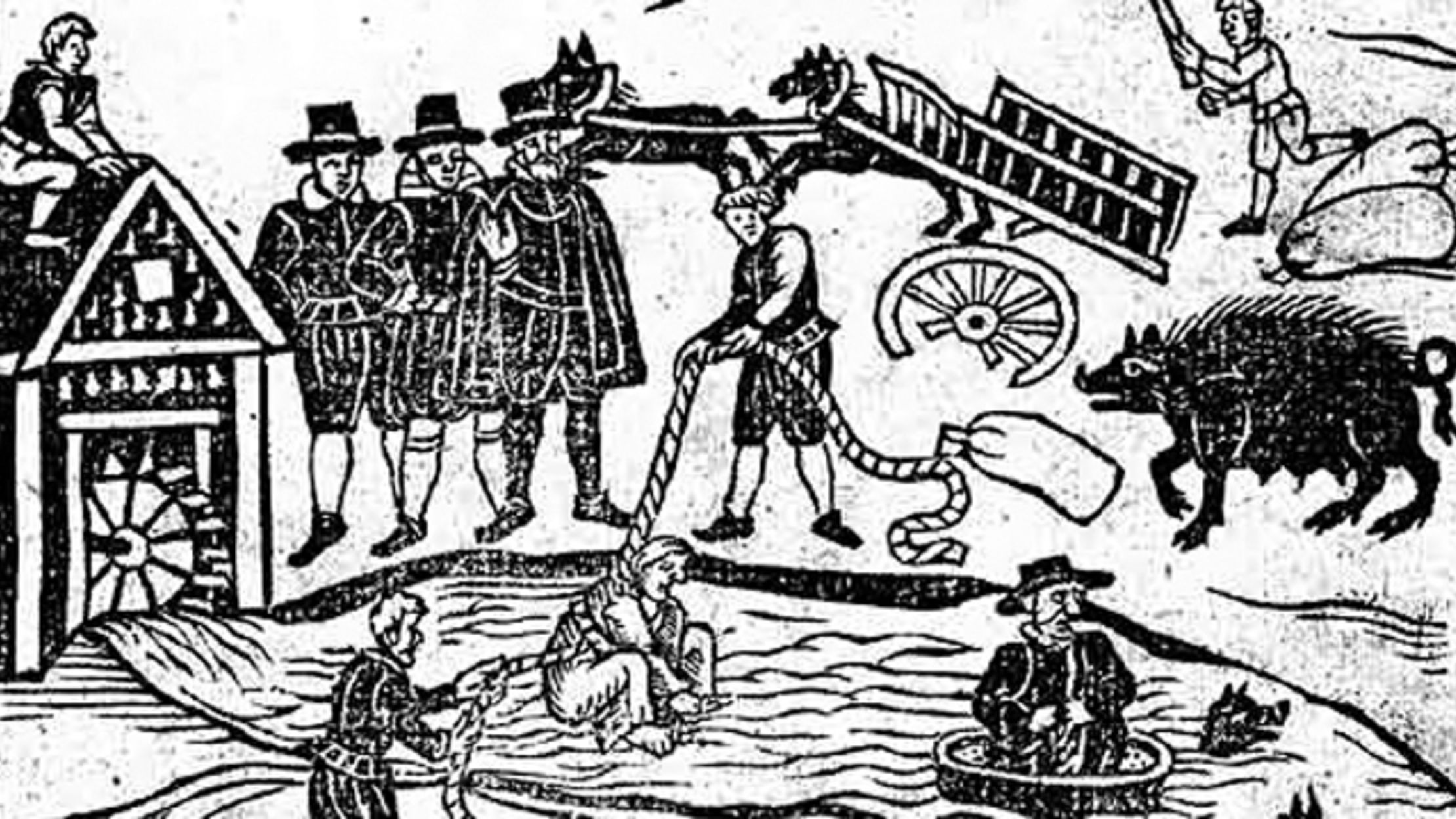
Inextricably linked to the superstitions of the era were the opportunistic Witch Hunters who would receive large sums of money to indite people accused of witch craft. These Witch Hunters would come to "purge" a town of the wicked among them, who were said to bring misfortune, sickness, bad harvests, among other things. Widely known publications of the time would provide evidence of supposed witchcraft, and a variety of trials were devised to convict said witches, which conveniently left little room for the accused's innocence, such as the infamous trial by water - where the accused would be tied to a large stone and sunk in the river. The innocent were said to sink, which would result in death by drowning, which was justified under the pretense that they would be accepted into God's Kingdom in Heaven. While these trials were at first a rare occurrence, and the punishments were seen as severe and sometimes damaging to a community, the profit motive of traveling Witch Hunters created incentive to sensationalize witchcraft and stir up mistrust among a population. At one point in time, no physical evidence was required to impart the death penalty - only "spectral evidence" - or one's testimony of the accused tormenting them in the form of a spirit or "familiar". - Work is piety/Work is identity
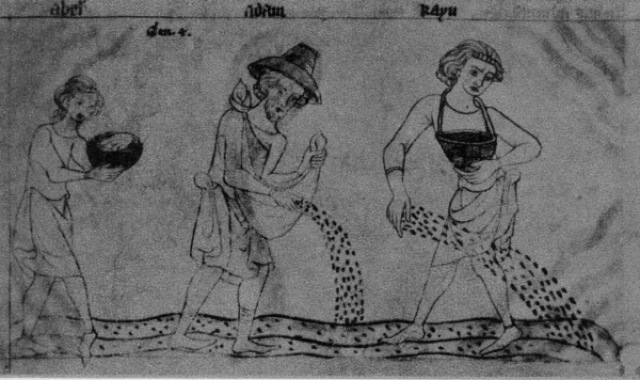
"In the sweat of thy face shalt thou eat bread." (Gen. 3:19). Labor in the Middle Ages entailed much spiritual consequence: particularly for the farmer, it meant the means by which you sustained yourself by working the land God provided. But for all laborers, it represented the opposite of idleness, from which evil, particularly lust, could set foot in one's life. It also provided the means for one to give charitable contributions to the poor and the Church alike, a central tenant of Christianity. Lowering oneself to the level of menial labor was also said to instill humility, to keep the ego in check and the individual grounded. "Labor", as differentiated from "work", also has the connotation of Christ-like suffering, something seen as a noble, almost meditative practice. This type of punishing physical labor was depicted in sermons as a sure passage into Heaven, as nothing better represented the paying ones penance for original sin.
Moving up the social ladder into the lives of the Artisan or Craftsman, it was a common practice to adopt the field of your occupation as your surname, hence the names Smith, Taylor, Cooper, Miller, etc. It was through your line of work you were identified; it represented your place in society and it was expected that you were to pass your trade down the familial line. Though a craftsman was barely better off than a farmer, it at least represented an escape from the drudgery of endless labor, and a chance to gain some sort of status through local guilds, which offered some recognition and influence. In this way, the only escape from toil came through dedication to craft.
- Lack of Comprehension
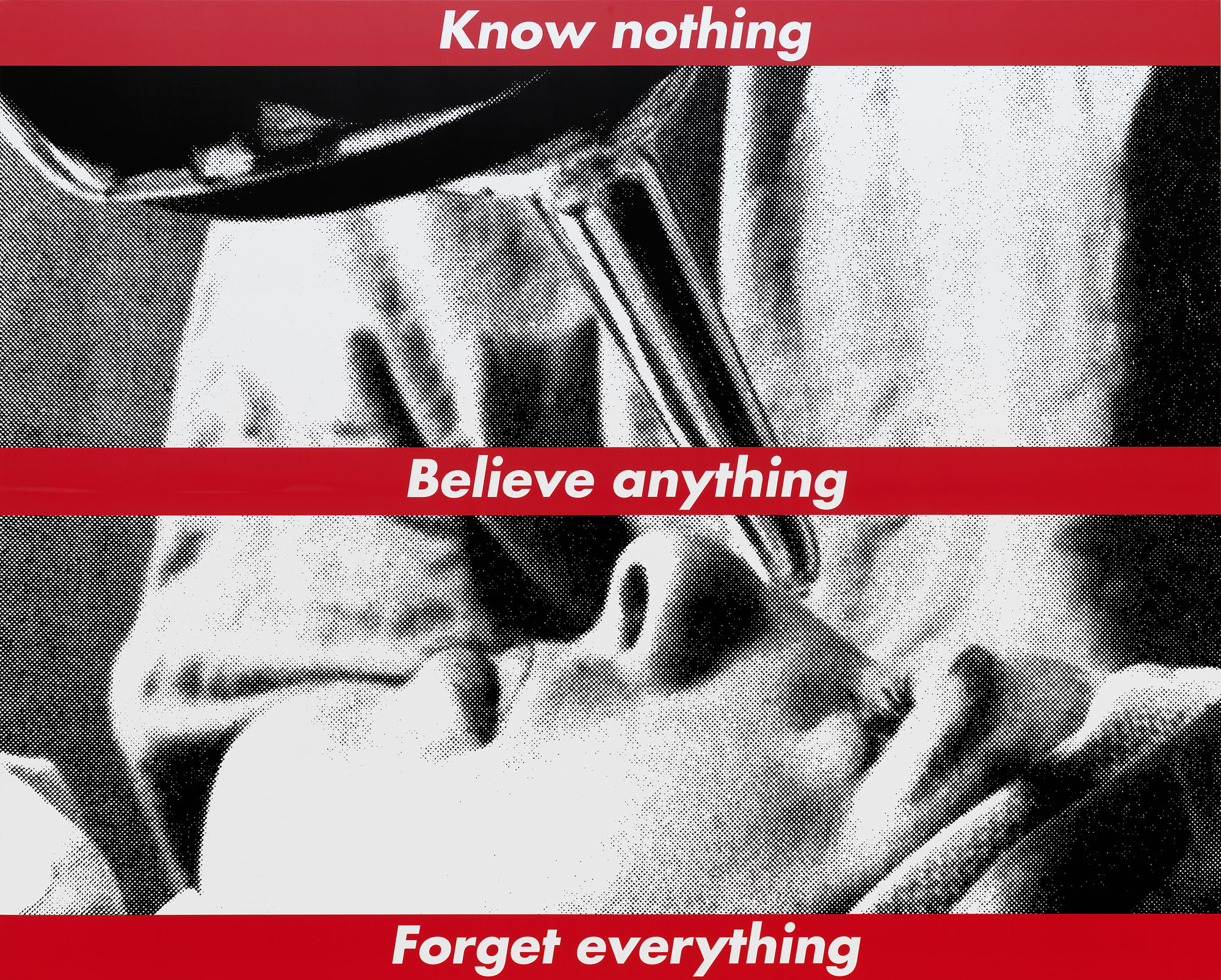
"Do you know why language manifests itself the way it does in my work? It's because I understand short attention spans." - Barbara Kruger
Literacy deals not only with the ability to read written language but also implies a level of comprehension of the written material. There are said to be three levels of reading comprehension - literal (reading what is right there), interpretive (reading between the lines), and applied (reading beyond the lines). In American public education, there is a heavy emphasis on momentary information retention. This type of learning emphasizes the "literal", or lowest tier, of comprehension, which does not encourage the learner to link the material to their own experiences, only memorize enough to receive passing grades. While this is succeeds at having one aimlessly regurgitate useless information, it does a poor job of teaching critical thinking or developing a sense of self. This has codified short attention spans and conformity in thought. It is a common sentiment of students to remark that they have learned nothing that will serve them "in the real world", a disheartening reflection of the disconnection between learned and applied knowledge. This has created a population of adults who are content to hold shallow, binary opinions because the relentless rat race leaves them exhausted, uncritical, seeking some human connection which is most easily satisfied through buying into pop culture. Social media is filled with flashy, disposable, vaguely relatable content as are its counterparts on television and the big screen. - Wealth Gap

We are living in an age of enormous wealth, as well as enormous wealth inequality - greater than that of the peasants who revolted during the French Revolution. But without class consciousness, the anxiety is easily quelled by the fact that the standard of living has improved drastically due to industrialization and the endless amount of cheap entertainment promises momentary release. The fact that, spare the bottom rung of society, the layman has access to infinite number of consumable goods and endless credit to attain them, it is easy to say: "I am not so unfortunate." This is compounded by the fact that the amount of wealth accrued by the top elite is nearly unimaginable, and besides, the amount work that begets this level of status is admirable. The singular end-goal in life is to rise above the despicable constraints of the lesser laborer and to rise to the god-like status of millionaire, because, of course, it is completely possible to do so, as long as you put in the work. - Social Unrest
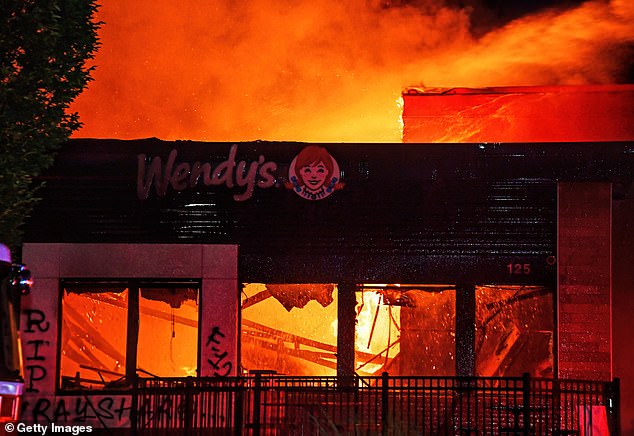
Many aspects of modernity are both dehumanizing and anti-human. The lack of human connection between the governance and the governed, alongside the history of immense cruelty perpetuated by authorities, has left little room for rapport between the two. In lieu of structural upheaval has come a tendency towards inter-personal strife, or in-fighting between the populace. In fact, this struggle is in some ways a fire stoked by the ruling class, for if the people are fighting among themselves, there is no need to fear an uprising. It does not help in any way that this conflict is warranted, and is comparatively a small battle to fight. The much larger war involves reconciliation and a true unifying spirit, which runs opposite the values of an atomized society. Therefore, the tendency to see short-lived, disorganized, easily co-opted single-issue movements as opposed to coordinated, comprehensive, generational coalitions is common and easily disarmed by the powers that be. This is a cycle that will continue perpetually until a singular coalescence or multiple allied collectives can form a meaningful strategy for the future. - Mistrust
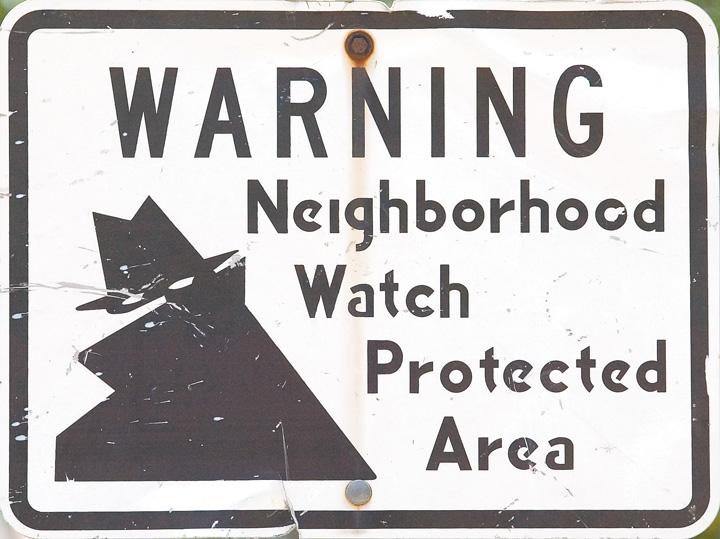
The lack of will to form deep relationships with those around you bred by the transactional nature of modern-day life, as well as sensational media meant to impart just enough anxiety to retain viewership, has made it all too easy to distrust one's neighbor and condemn their motivations through personal projections. The reduction of human lives to shallow stereotypes provides the ease of mind that comes alongside self-righteousness, the simplicity of remaining an individualist, and serves the ruling class by promoting an aimless, disinterested populace. - Scapegoatism
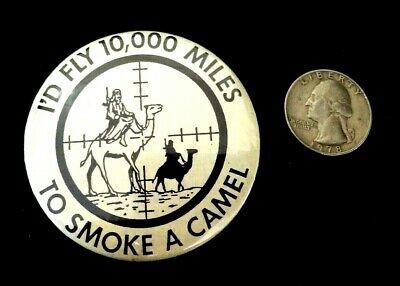
Playing into the fermented distrust of the individual, propagandized media has an on-going love affair with the scapegoat, which creates a convenient funnel for the pent-up resentment and malaise it instigates. This can easily mask the true motivations of war and legislation as long as it has a convenient excuse. Blame is easily shifted where it is most convenient and absolves individual of the consequence of their power, while effectively giving the common person a target for their vitriol. Nothing represents this better, in my opinion, than the crude mass-produced paraphernalia of Operation Desert Storm, such as the graphic of an Iraqi man riding a camel overlaid with the scope of a rifle and captioned, "I'd Fly 10,000 Miles to Smoke A Camel". A cheeky reference to Big Tobacco's advertising slogan, "I'd Walk a Mile for a Camel", combined with blunt, dehumanizing military nationalism, attempts to rally the public to stand behind a war over that was, in essence, initiated over oil prices. The tendency to create oppressive conditions for non-Americans when the American way of life is threatened is easily justifiable when it can be cloaked in nationalistic fervor, and given a witty slogan declaring American supremacy. - Work is identity

It would be no assumption to say that life in America is wholly determined by your career: from childhood the education system is modeled around and for the adult working life, while the conversation-starter, "What do you do?" begets a response in the form of an occupation (a surefire way to determine how you will treat individual). Status is achieved through money and fame, careers are divided between the respectable and the untouchable, and the aspiration of many is a well-paying desk job, a sort of lavish idleness. If you are poor, you are supposed to "hustle" your way out of it; if you are underpaid, it is because you are under-skilled; if you have money, surely you deserve it, because only through merit you earned it. In this way, your occupation reflects the whole of your character; the work is who you are - it is not the means through which you create something material.
All of this being said, let it be known that no matter the allure of technological progression, nor the relative comfort of our modern lives, human history is not, and never has been a linear progression towards utopia; and no better example illustrates this as the fall of the Roman Empire and descent into the Dark Ages. This is not to say this comparison is perfectly analogous, nor is it a prediction of what I believe the future to entail, but I wish this to serve as a cautionary tale against hubris on both the personal and collective levels. As mentioned in the opening paragraph of this journal, the people living during the Dark Ages had no concept of the "Dark Ages", and by no means was the standard of living universally miserable nor did scientific advancement halt entirely, but the people during this time period were absolutely subject to tyranny and oppression, plague and famine. If I could leave you with a parting sentiment, it would be a reminder of your obligation to leave this world having cultivated and shared the knowledge precious to you so that it may resist both the wickedness of Man and the vengeance of God.
